16 start with R start with R
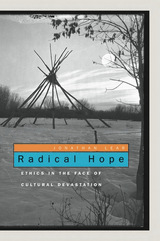
Shortly before he died, Plenty Coups, the last great Chief of the Crow Nation, told his story—up to a certain point. “When the buffalo went away the hearts of my people fell to the ground,” he said, “and they could not lift them up again. After this nothing happened.” It is precisely this point—that of a people faced with the end of their way of life—that prompts the philosophical and ethical inquiry pursued in Radical Hope. In Jonathan Lear’s view, Plenty Coups’s story raises a profound ethical question that transcends his time and challenges us all: how should one face the possibility that one’s culture might collapse?
This is a vulnerability that affects us all—insofar as we are all inhabitants of a civilization, and civilizations are themselves vulnerable to historical forces. How should we live with this vulnerability? Can we make any sense of facing up to such a challenge courageously? Using the available anthropology and history of the Indian tribes during their confinement to reservations, and drawing on philosophy and psychoanalytic theory, Lear explores the story of the Crow Nation at an impasse as it bears upon these questions—and these questions as they bear upon our own place in the world. His book is a deeply revealing, and deeply moving, philosophical inquiry into a peculiar vulnerability that goes to the heart of the human condition.
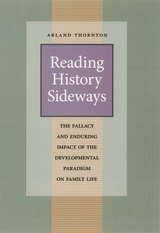
In Reading History Sideways, leading family scholar Arland Thornton demonstrates how this approach, though long since discredited, has permeated Western ideas and values about the family. Further, its domination of social science for centuries caused the misinterpretation of Western trends in family structure, marriage, fertility, and parent-child relations. Revisiting the "developmental fallacy," Thornton here traces its central role in changes in the Western world, from marriage to gender roles to adolescent sexuality. Through public policies, aid programs, and colonialism, it continues to reshape families in non-Western societies as well.

A leading scholar of twentieth-century American history looks again at the beginning of the century, this time giving us a remarkable portrait of the emergence of modern society and its distinctive transformations and social problems. As in Regulating a New Economy, his earlier book on the changing American economy, Morton Keller integrates political, legal, and governmental history, now providing the first comprehensive study of the ideas and interests that shaped early twentieth-century American social policy.
Keller looks at the major social institutions: the family, voluntary associations, religion, and education. He examines important social issues: the rights of the individual, the regulation of public mores (gambling, drugs, prostitution, alcohol abuse), the definition and punishment of crime, and social welfare policy (poverty, public health, conditions of labor). His final area of concern is one that assumed new importance after 1900: social policy directed at major groups, such as immigrants, blacks, Native Americans, and women.
The interpretive theme is fresh and controversial. Keller sees early twentieth-century American government not as an artifact of class, race, and gender conflict but as the playing out of tension between the Progressive thrust to restore social cohesion through the principle of order and organization and two other, mutually antipodal, social interests: the weight of the American past and the growing pluralism of modern America. The interplay among these elements—progressivism, persistence, pluralism—shaped early twentieth-century social policy. The result was no clear victory for any one of these public attitudes, but rather the emergence and delineation of most of the social issues that have dominated American public life for the rest of the century.
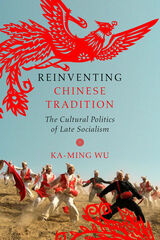
Ka-ming Wu's ethnographic account of contemporary Yan'an documents how people have reworked the revival of three rural practices--paper-cutting, folk storytelling, and spirit cults--within (and beyond) the socialist legacy. Moving beyond dominant views of Yan'an folk culture as a tool of revolution or object of market reform, Wu reveals how cultural traditions become battlegrounds where conflicts among the state, market forces, and intellectuals in search of an authentic China play out. At the same time, she shows these emerging new dynamics in the light of the ways rural residents make sense of rapid social change.
Alive with details, Reinventing Chinese Tradition is an in-depth, eye-opening study of an evolving culture and society within contemporary China.
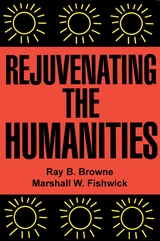
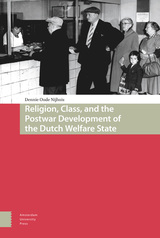
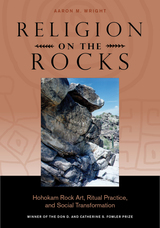
We are nearly all intrigued by the petroglyphs and pictographs of the American Southwest, and we commonly ask what they “mean”. Religion on the Rocks redirects our attention to the equally important matter of what compelled ancient peoples to craft rock art in the first place. To examine this question, Aaron Wright presents a case study from Arizona's South Mountains, an area once flanked by several densely populated Hohokam villages. Synthesizing results from recent archaeological surveys, he explores how the mountains' petroglyphs were woven into the broader cultural landscape and argues that the petroglyphs are relics of a bygone ritual system in which people vied for prestige and power by controlling religious knowledge. The features and strategic placement of the rock art suggest this dimension of Hohokam ritual was participatory and prominent in village life. Around AD 1100, however, petroglyph creation and other ritual practices began to wane, denoting a broad transformation of the Hohokam social world. Wright’s examination of the South Mountains petroglyphs offers a novel narrative of how Hohokam villagers negotiated a concentration of politico-religious authority around platform mounds. Readers will come away with a better understanding of the Hohokam legacy and a greater appreciation for rock art's value to anthropology.
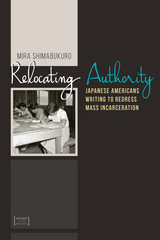
Relocating Authority examines the ways Japanese Americans have continually used writing to respond to the circumstances of their community’s mass imprisonment during World War II. Using both Nikkei cultural frameworks and community-specific history for methodological inspiration and guidance, Mira Shimabukuro shows how writing was used privately and publicly to individually survive and collectively resist the conditions of incarceration.
Examining a wide range of diverse texts and literacy practices such as diary entries, note-taking, manifestos, and multiple drafts of single documents, Relocating Authority draws upon community archives, visual histories, and Asian American history and theory to reveal the ways writing has served as a critical tool for incarcerees and their descendants. Incarcerees not only used writing to redress the “internment” in the moment but also created pieces of text that enabled and inspired further redress long after the camps had closed.
Relocating Authority highlights literacy’s enduring potential to participate in social change and assist an imprisoned people in relocating authority away from their captors and back to their community and themselves. It will be of great interest to students and scholars of ethnic and Asian American rhetorics, American studies, and anyone interested in the relationship between literacy and social justice.
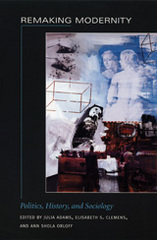
The contributors represent a wide variety of theoretical orientations and a broad spectrum of understandings of what constitutes historical sociology. They address such topics as religion, war, citizenship, markets, professions, gender and welfare, colonialism, ethnicity, bureaucracy, revolutions, collective action, and the modernist social sciences themselves. Remaking Modernity includes a significant introduction in which the editors consider prior orientations in historical sociology in order to analyze the field’s resurgence. They show how current research is building on and challenging previous work through attention to institutionalism, rational choice, the cultural turn, feminist theories and approaches, and colonialism and the racial formations of empire.
Contributors
Julia Adams
Justin Baer
Richard Biernacki
Bruce Carruthers
Elisabeth Clemens
Rebecca Jean Emigh
Russell Faeges
Philip Gorski
Roger Gould
Meyer Kestnbaum
Edgar Kiser
Ming-Cheng Lo
Zine Magubane
Ann Shola Orloff
Nader Sohrabi
Margaret Somers
Lyn Spillman
George Steinmetz
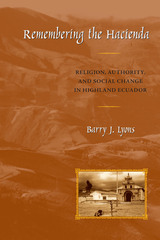
From the colonial period through the mid-twentieth century, haciendas dominated the Latin American countryside. In the Ecuadorian Andes, Runa—Quichua-speaking indigenous people—worked on these large agrarian estates as virtual serfs. In Remembering the Hacienda: Religion, Authority, and Social Change in Highland Ecuador, Barry Lyons probes the workings of power on haciendas and explores the hacienda's contemporary legacy.
Lyons lived for three years in a Runa village and conducted in-depth interviews with elderly former hacienda laborers. He combines their wrenching accounts with archival evidence to paint an astonishing portrait of daily life on haciendas. Lyons also develops an innovative analysis of hacienda discipline and authority relations. Remembering the Hacienda explains the role of religion as well as the reshaping of Runa culture and identity under the impact of land reform and liberation theology.
This beautifully written book is a major contribution to the understanding of social control and domination. It will be valuable reading for a broad audience in anthropology, history, Latin American studies, and religious studies.
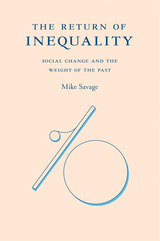
A pioneering book that takes us beyond economic debate to show how inequality is returning us to a past dominated by empires, dynastic elites, and ethnic divisions.
The economic facts of inequality are clear. The rich have been pulling away from the rest of us for years, and the super-rich have been pulling away from the rich. More and more assets are concentrated in fewer and fewer hands. Mainstream economists say we need not worry; what matters is growth, not distribution. In The Return of Inequality, acclaimed sociologist Mike Savage pushes back, explaining inequality’s profound deleterious effects on the shape of societies.
Savage shows how economic inequality aggravates cultural, social, and political conflicts, challenging the coherence of liberal democratic nation-states. Put simply, severe inequality returns us to the past. By fracturing social bonds and harnessing the democratic process to the strategies of a resurgent aristocracy of the wealthy, inequality revives political conditions we thought we had moved beyond: empires and dynastic elites, explosive ethnic division, and metropolitan dominance that consigns all but a few cities to irrelevance. Inequality, in short, threatens to return us to the very history we have been trying to escape since the Age of Revolution.
Westerners have been slow to appreciate that inequality undermines the very foundations of liberal democracy: faith in progress and trust in the political community’s concern for all its members. Savage guides us through the ideas of leading theorists of inequality, including Marx, Bourdieu, and Piketty, revealing how inequality reimposes the burdens of the past. At once analytically rigorous and passionately argued, The Return of Inequality is a vital addition to one of our most important public debates.
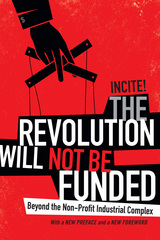
Contributors. Christine E. Ahn, Robert L. Allen, Alisa Bierria, Nicole Burrowes, Communities Against Rape and Abuse (CARA), William Cordery, Morgan Cousins, Ruth Wilson Gilmore, Stephanie Guilloud, Adjoa Florência Jones de Almeida, Tiffany Lethabo King, Paul Kivel, Soniya Munshi, Ewuare Osayande, Amara H. Pérez, Project South: Institute for the Elimination of Poverty and Genocide, Dylan Rodríguez, Paula X. Rojas, Ana Clarissa Rojas Durazo, Sisters in Action for Power, Andrea Smith, Eric Tang, Madonna Thunder Hawk, Ije Ude, Craig Willse

This book presents an insider's account of Columbia's internal conflict. At the forefront are the Revolutionary Armed Forces of Colombia-People's Army (FARC-EP).
Although they are one of the most powerful military forces in Latin American history, little is known about the FARC-EP. James J. Brittain explains where and why this political military movement came into existence and assesses whether the methods employed by the insurgency have the potential to free those marginalised in Colombia.
As democratic socialism develops in Venezuela and Bolivia, Brittain's fascinating study assesses the relevance of armed struggle to 21st century Latin American politics. This is an essential title for those wishing to develop a full understanding of the continent.
By evaluating the FARC-EP's actions, ideological construction, and their theoretical placement, the book gauges how this guerrilla movement relates to revolutionary theory and practice and through what tangible mechanisms, if any, they are creating a new Colombia.
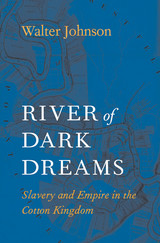
Winner of the SHEAR Book Prize
Honorable Mention, Avery O. Craven Award
“Few books have captured the lived experience of slavery as powerfully.”
—Ari Kelman, Times Literary Supplement
“[One] of the most impressive works of American history in many years.”
—The Nation
“An important, arguably seminal, book…Always trenchant and learned.”
—Wall Street Journal
A landmark history, by the author of National Book Critics Circle Award finalist The Broken Heart of America, that shows how slavery fueled Southern capitalism.
When Jefferson acquired the Louisiana Territory, he envisioned an “empire for liberty” populated by self-sufficient white farmers. Cleared of Native Americans and the remnants of European empires by Andrew Jackson, the Mississippi Valley was transformed instead into a booming capitalist economy commanded by wealthy planters, powered by steam engines, and dependent on the coerced labor of slaves. River of Dark Dreams places the Cotton Kingdom at the center of worldwide webs of exchange and exploitation that extended across oceans and drove an insatiable hunger for new lands. This bold reconsideration dramatically alters our understanding of American slavery and its role in U.S. expansionism, global capitalism, and the upcoming Civil War.
Walter Johnson deftly traces the connections between the planters’ pro-slavery ideology, Atlantic commodity markets, and Southern schemes for global ascendency. Using slave narratives, popular literature, legal records, and personal correspondence, he recreates the harrowing details of daily life under cotton’s dark dominion. We meet the confidence men and gamblers who made the Valley shimmer with promise, the slave dealers, steamboat captains, and merchants who supplied the markets, the planters who wrung their civilization out of the minds and bodies of their human property, and the true believers who threatened the Union by trying to expand the Cotton Kingdom on a global scale.
But at the center of the story are the enslaved people who pulled down the forests, planted the fields, picked the cotton—who labored, suffered, and resisted on the dark underside of the American dream.
“Shows how the Cotton Kingdom of the 19th-century Deep South, far from being a backward outpost of feudalism, was a dynamic engine of capitalist expansion built on enslaved labor.”
—A. O. Scott, New York Times
“River of Dark Dreams delivers spectacularly on the long-standing mission to write ‘history from the bottom up.’”
—Maya Jasanoff, New York Review of Books
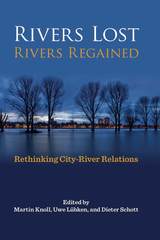
The four sections in Rivers Lost, Rivers Regained discuss how cities have gained control and exerted power over rivers and waterways far upstream and downstream; how rivers and floodplains in cityscapes have been transformed by urbanization and industrialization; how urban rivers have been represented in cultural manifestations, such as novels and songs; and how more recent strategies work to redefine and recreate the place of the river within the urban setting.
At the nexus between environmental, urban, and water histories, Rivers Lost, Rivers Regained points out how the urban-river relationship can serve as a prime vantage point to analyze fundamental issues of modern environmental attitudes and practices.
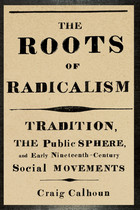
READERS
Browse our collection.
PUBLISHERS
See BiblioVault's publisher services.
STUDENT SERVICES
Files for college accessibility offices.
UChicago Accessibility Resources
home | accessibility | search | about | contact us
BiblioVault ® 2001 - 2024
The University of Chicago Press









